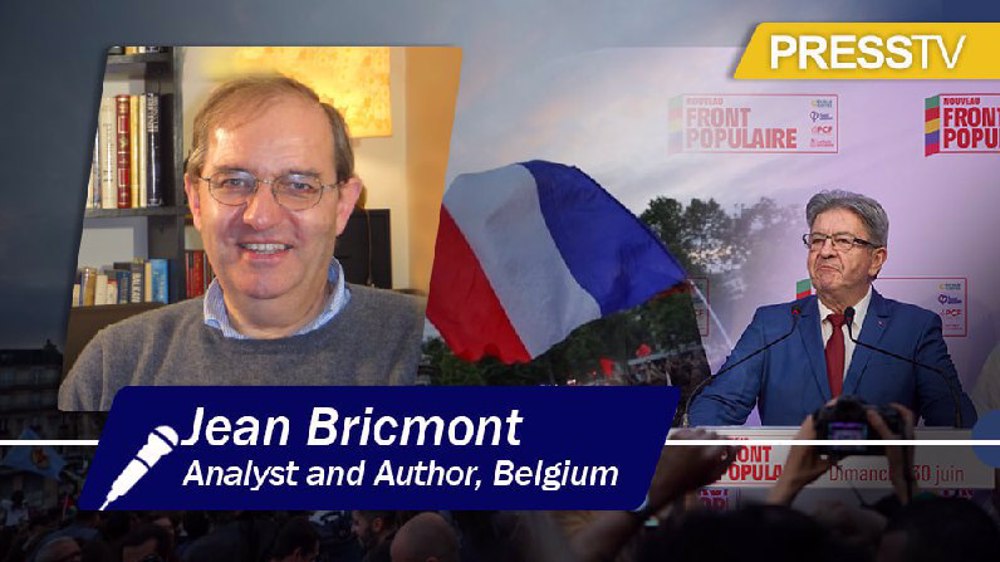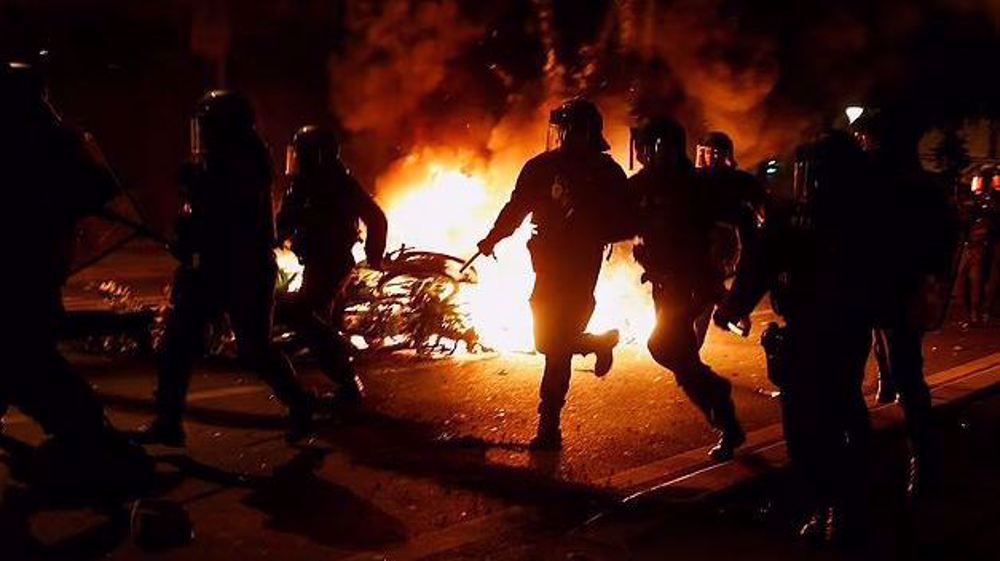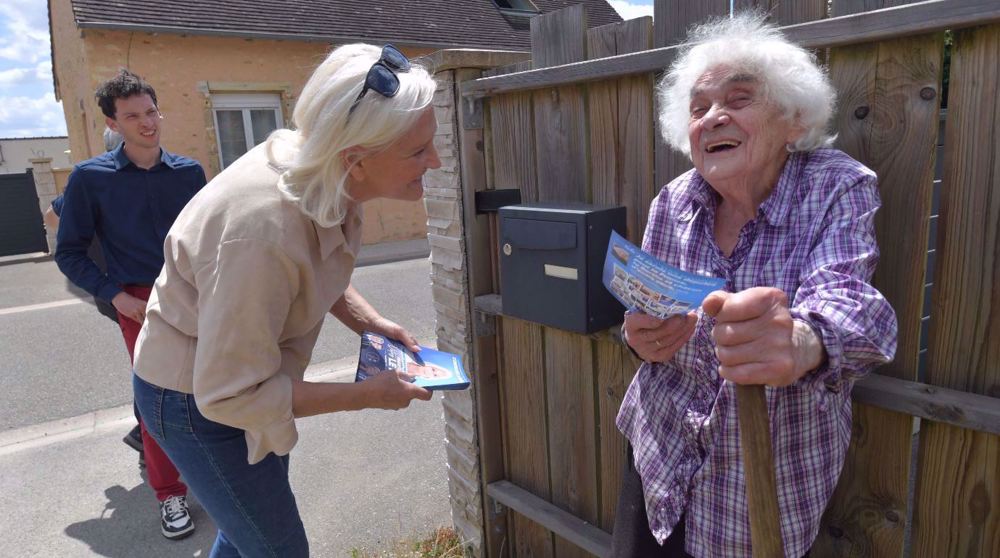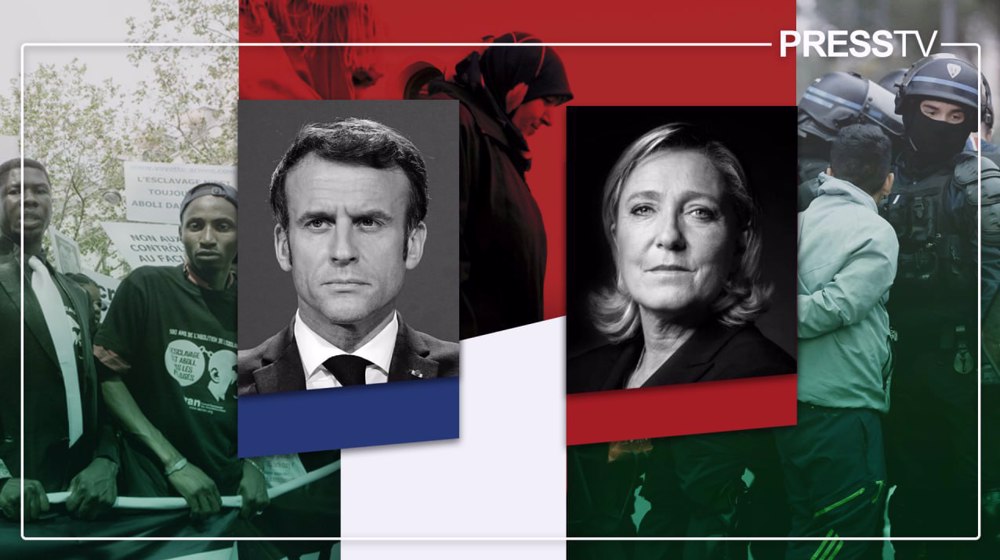French policies will continue to be made by US and EU through NATO: Analyst
By Syed Zafar Mehdi
There is no policy victory in French elections, and major policies—both domestic and foreign—will continue to be made by the United States and the European Union through NATO, according to an analyst.
In an interview with the Press TV website, Jean Bricmont, a Belgian political analyst, author, and noted figure in the anti-imperialism movement, said the left’s relative majority in the French legislative elections was essentially a “scare vote” against the far-right National Rally (RN), a party portrayed as “dangerously racist and anti-democratic.”
French elections resulted in a hung parliament this week, with an alliance of left-leaning parties winning the most seats in the second round of voting, preventing the far-right from gaining power.
A party or coalition needed to secure at least 289 of the total 577 seats in the country’s parliament for an outright win, but all three major alliances fell short of that mark.
Paris rallies against far right as Macron rejects unity coalition with leftists
— Press TV 🔻 (@PressTV) July 4, 2024
Press TV's @RaminMazaheri2 reports from Paris pic.twitter.com/xmhmhzk4JE
Three alliances emerged on top after the vote count, but none achieved a majority.
The New Popular Front (NFP), a loose alliance of leftist parties, won a majority of seats—188, a significant surge from the first round when the far-right coalition was ahead in the race.
Ensemble, a centrist coalition led by French President Emmanuel Macron, secured 161 seats, and the National Rally and its allies, led by Marine Le Pen, won 142 seats.
Bricmont noted that the left electoral coalition, which won the most seats in French elections, is “deeply divided.”
“The left electoral coalition is deeply divided, with its Socialist Party right wing close to Macron and very far from its largest component, Les Insoumis (the Unbowed), led by Jean-Luc Mélenchon, who is now the most demonized political figure in France,” he told the Press TV website.
Macron, whose alliance lost about a third of its seats, now has to sit down with his political opponents—center-left socialists and center-right republicans—in cobbling together a coalition government.
Bricmont said the election results are a resounding verdict against the Macron government’s policies, but hastened to add that the rejection of his policies is not accompanied by any assertion of an alternative.
“Even where there seems to be a majority against Macron’s retirement policy or against escalation in Ukraine, that majority is split between the left and the right, who will never join together,” he noted.
The far-right forces in France, represented by the National Rally, continue to gain ground, bagging 125 seats in these elections, compared to 89 seats in 2022 and 8 in 2017.
Bricmont said that although Le Pen's RN ended up in third place, it didn’t exactly slump as is being reported.
“It simply did not pick up seats it might have won if the other two blocs—the left and Macron—had not abstained in each other’s favor,” he asserted.
“The RN grows largely because the left refuses to address the concerns of its voters, such as immigration and social deterioration. This is not likely to change.”
On Mélenchon’s assertion, after the announcement of election results, that France would recognize the State of Palestine, Bricmont said it is “extremely unlikely” that the Unbowed leader will be in a position to define French policy toward Palestine.
“After all, the whole demonization campaign (similar to the one against Jeremy Corbyn in Britain) is due to his ‘antisemitism,’ which is only expressed in his support for a Palestinian state (which is actually the official French policy but not ‘right now’) and his refusal to condemn Hamas as a terrorist organization,” he told the Press TV website.
US fighter aircraft shot down ‘in friendly fire’ amid aggression on Yemen
Yemeni FM: Israel’s sponsors accountable for ongoing aggression on Sana’a
Eight Palestinians killed as Israel attacks Gaza school, hospitals
VIDEO | Rome, Milan host new protests in solidarity with Palestinians
Dec. 21: ‘Axis of Resistance’ operations against Israeli occupation
Spain jurists demand ties with Israel ties be cut
VIDEO | Press TV's news headlines
VIDEO | Iran honors top Science Olympiad medalists













 This makes it easy to access the Press TV website
This makes it easy to access the Press TV website